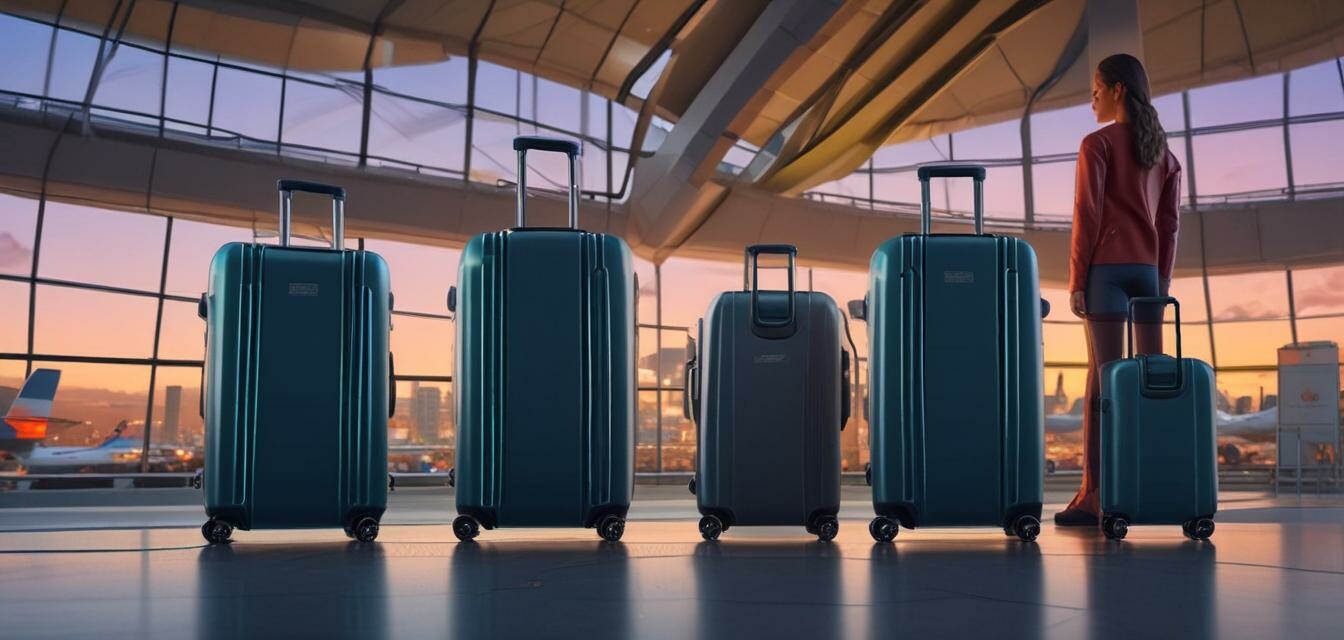
Smart luggage and its impact on airline policies
Key Takeaways
- Smart luggage is redefining travel convenience, prompting changes in airline policies.
- Airlines are increasingly adopting regulations around battery safety due to smart luggage features.
- Understanding airline policies on smart luggage can enhance the travel experience.
- Monitoring developments in the smart luggage industry helps passengers make informed choices.
- Airlines are collaborating with technology companies to improve luggage tracking systems.
Smart luggage, integrated with GPS technology, is becoming increasingly popular among travelers. This surge in demand has significantly influenced airline policies and regulations. In this article, we will explore the implications of smart luggage on air travel, touching upon regulatory changes, safety precautions, and the future of travel convenience.
The rise of smart luggage
With the advent of technology, traditional luggage has evolved into smart luggage. These innovative products offer various features such as built-in GPS tracking, remote locking mechanisms, and even charging ports for electronic devices. As a consequence, airlines have had to adapt their policies to accommodate this new trend.
What is smart luggage?
Smart luggage is designed with integrated technology that provides added convenience and security for travelers. Common features of smart luggage include:
- GPS tracking for real-time location monitoring.
- Built-in battery packs for charging devices on the go.
- Remote locking systems controlled via smartphone apps.
- Weight sensors to prevent excess baggage fees.
Impact on airline policies
As smart luggage gains traction, airlines are increasingly adjusting their policies to address safety concerns, particularly regarding lithium-ion batteries used in electronic devices. Here are some important policy considerations:
| Consideration | Details |
|---|---|
| Battery Regulations | Many airlines have begun to restrict the size and capacity of batteries allowed in luggage due to safety concerns. |
| Liability for Lost Items | Smart luggage can help demonstrate ownership of lost items, impacting how airlines manage lost luggage claims. |
| Check-In Procedures | Travelers may be required to remove batteries before checking luggage or face additional charges. |
Current airline policies on smart luggage
Below are some general guidelines adopted by airlines regarding smart luggage:
- Smart luggage must adhere to the airline's battery size limits, often specified in watt-hours (Wh).
- Luggage that exceeds weight or size limitations may incur additional fees.
- Some airlines allow smart luggage on the condition that the battery can be removed.
The future of smart luggage and airline regulations
As technological advancements continue to enhance smart luggage capabilities, it’s expected that airline policies will also evolve. The key trends shaping the future include:
- Increased collaboration between airlines and tech companies for baggage tracking and management.
- Integration of more robust safety features in smart luggage.
- Proactive regulation adjustments to accommodate new technologies without compromising safety.
How travelers can prepare
To ensure a smooth travel experience with smart luggage, consider the following tips:
Beginner's tips for traveling with smart luggage
- Always check your airline's policy on smart luggage before traveling.
- Make sure your luggage battery complies with the airline's restrictions.
- Download the companion app for your smart luggage, if available, to enjoy enhanced features.
- Be prepared to demonstrate battery removal if requested at check-in.
Conclusion
Smart luggage technology is undeniably transforming the way passengers travel. The growing popularity of these products is compelling airlines to innovate their policies in response. By staying informed and understanding airline regulations on smart luggage, travelers can enhance their overall travel experience while ensuring compliance with evolving rules.
Pros
- Highly convenient for tracking belongings.
- Smart features that enhance travel safety and ease.
- Ability to charge electronic devices while on the go.
Cons
- Possible additional fees associated with non-compliant luggage.
- Limited battery capacities may restrict usage.
- Variability in airline policies can create confusion among travelers.